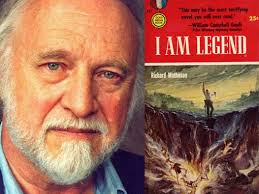I am still thinking about the notion that writers can get stuck fast in the process of editing their fiction to the point where all other writing matters that need to concern them are pushed away, suspended, lost. I envisage a car stuck in the mud and the more furiously the driver revs the engine the more deeply she becomes embedded in the mud. The majority of agents, editors and publishers, the very people who should have some investment in original concepts and language use, frequently tell novice writers that they have to ‘polish’ their work before they send it in. What an unfortunate word that is in this context. The frightened writer slaves over her text until she could practically recite the whole piece — shifting one word here, one word there, remove, add, remove again that same full stop that’s been bugging her— and the text never really does improve, because it was fine in the first place, or maybe because the storyline was a lousy one anyway, and besides that, the reader will be non-the-wiser one way or the other.
I think the mood and the tone are the two elements that lift a story up and make it special, not obsessive editing of the same text. I wonder sometimes if writers fool themselves into thinking they’re doing valuable work by deep attention to editing, when in reality they are avoiding the fact that they have little or no new material to grapple with because they haven’t spent any time going out to find it, or researching to find it… And being without material, or low on material, is a frightening state of affairs for a writer. But all the time is that little voice telling them they have to polish the work before it can be submitted. I think editing can be a trance-like experience, a bit like knitting, a restful and satisfying place to be… another reason to retreat into it.
When the piece is finally as ‘polished’ as it can be and the agent/editor/publisher has accepted it for publication, the work might be edited once again anyway by someone else. Not that that is a bothersome thing necessarily, as, apart from typos, a good editor can point out gaps in logic, missing pieces of information, gaps in credibility, goofy dialogue, and even exposition should such a thing be found in the text. Yet, however much the, let’s call them AEPs, [agents, editors, publishers], claim to admire and desire beautifully written prose, what they want more is a saleable item and the money it could make them, and beautiful writing does not, in its own right, sell books. Just think of I am Legend by Richard Burton Matheson [https://en.wikipedia.org/wiki/I_Am_Legend_(novel)], brilliant and much imitated story idea, badly written and badly researched, [workers in science labs would laugh out loud at his hasty research into microscopes]. So, making a piece of prose beautiful and well written through the process of diligent and endless editing, is hardly going to increase its chances of selling, but it will prevent the writer from getting on with other work, yet there are many writers who are very myopic about this fact, and I myself am dangerously close to their territory. It probably sounds as if I am almost advocating sloppy work, but this is not the case. I am expanding on what I wrote the other day on this blog page, about the fact that the editing process needs to be kept in its place and not to become the be-all and end- all of the matter. And should I happen upon one of those interviews in which yet another AEP is asked to give advice to writers and she first comes up with the well-worn phrase, ‘read-read-read,’ like a bird calling from the river bank, followed by ‘polish your work until it shines,’ I would like to seek her out and suggest she puts a big stone in her mouth to see if she can polish that… keep her quiet for a bit anyway.
Richard Burton Matheson tells us in I am legend that ‘…of course, he knew nothing about microscopes, [author intrusion?], and he’d taken the first one he’d found. Three days later, he hurled it against the wall with a strangled curse and stamped it into pieces with his heels.’ It does make you wonder if he ever actually saw a real microscope, or he just looked at a picture of one in a magazine if he really thought you could break it by stamping on it.




